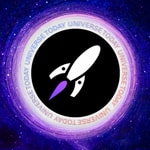This Week in Space (Audio) – Details, episodes & analysis
Podcast details
Technical and general information from the podcast's RSS feed.

This Week in Space (Audio)
TWiT
Frequency: 1 episode/8d. Total Eps: 10

Recent rankings
Latest chart positions across Apple Podcasts and Spotify rankings.
Apple Podcasts
🇨🇦 Canada - astronomy
27/07/2025#10🇬🇧 Great Britain - astronomy
27/07/2025#19🇩🇪 Germany - astronomy
27/07/2025#37🇺🇸 USA - astronomy
27/07/2025#10🇫🇷 France - astronomy
27/07/2025#32🇨🇦 Canada - astronomy
26/07/2025#9🇬🇧 Great Britain - astronomy
26/07/2025#15🇩🇪 Germany - astronomy
26/07/2025#36🇺🇸 USA - astronomy
26/07/2025#12🇫🇷 France - astronomy
26/07/2025#49
Spotify
No recent rankings available
Shared links between episodes and podcasts
Links found in episode descriptions and other podcasts that share them.
See all- https://twit.tv/clubtwit
674 shares
- https://twit.tv/people/ant-pruitt
59 shares
- https://twit.tv/people/rod-pyle
24 shares
- https://twitter.com/Isaac_A_Arthur
868 shares
- https://twitter.com/michaeldwall
3 shares
- https://twitter.com/issaboveyou
2 shares
- https://amzn.to/3LWMhY1
4 shares
- https://amzn.to/3YxmJab
4 shares
- https://amzn.to/3CPUgVw
4 shares
RSS feed quality and score
Technical evaluation of the podcast's RSS feed quality and structure.
See allScore global : 63%
Publication history
Monthly episode publishing history over the past years.
TWiS 161: The TWiS Comedy Hour! - With Starship, Voyager, Artemis, and more!
Episode 161
vendredi 16 mai 2025 • Duration 01:09:18
It's time for Rod and Tariq to catch up on headlines... and space dad jokes! We're going to update you on the ever-slimming NASA budget, the latest news on the Voyager spacecraft, what's up with the SLS, Orion capsule, and Artemis programs? SpaceX's 9th Starship test flight, AliBaba in orbit, and the end of the universe. And more space jokes than ever for you to choke on.
- Gilmore Space Launch Attempt: Gilmore Space's Ares rocket experienced a payload fairing separation on the pad before launch.
- NASA Budget Cuts & Artemis Program: Proposed budget cuts threaten NASA's Space Launch System (SLS), Orion capsule, and Lunar Gateway, sparking debate about the future of the Artemis program and a potential shift towards commercial solutions.
- Voyager 1 Thrusters: After 21 years of inactivity, Voyager 1 successfully fired its backup thrusters, ensuring continued communication from interstellar space.
- NASA Advisory Groups React: NASA advisory groups, including the Mars Exploration Program Advisory Group, expressed concern over budget cuts and their potential to hinder U.S. leadership in space exploration.
- Texas MARS Act: Texas Senator John Cornyn proposed allocating $1 billion for modernizing the Johnson Space Center.
- Intuitive Machines Update: Intuitive Machines plans to return to the moon in Q1 2026 with Intuitive Machines 3, having identified and addressed the causes of previous landing failures.
- SpaceX Starship Update: Elon Musk will provide an update on SpaceX's Mars plans before the next Starship test flight, frlight 9, addressing challenges like refueling the vehicle in space.
- The End of the Universe: Astrophysicists predict the universe's end, or "heat death", will occur sooner than previously thought, approximately 10 to the power of 78 years from now.
- China's Orbital Computing Sats: China launched its first 12 orbital computing satellites, part of a planned 2,800-satellite constellation designed to shift power-hungry computing and AI capabilities off-planet.
- Starlink Profitability: SpaceX's Starlink satellite internet business has generated $11.8 billion in revenue in 2024, surpassing its space transportation business.
- VIPER Lunar Rover: NASA may be working to save the VIPER lunar prospecting rover mission, which was previously canceled due to lander delays.
- Solar Flare Activity: The sun has unleashed a strong solar flare, an X2.7 magnitude, with the potential for increased auroras on Earth.
- Auroras on Mars: Perseverance rover images reveal the first visible light auroras on Mars from the planet's surface.
- Virgin Galactic Update: Virgin Galactic plans to launch its new Spaceship Delta fleet in early 2026 and resume ticket sales, with prices increases to come.
Hosts: Rod Pyle and Tariq Malik
Download or subscribe to This Week in Space at https://twit.tv/shows/this-week-in-space.
Join Club TWiT for Ad-Free Podcasts!
Support what you love and get ad-free shows, a members-only Discord, and behind-the-scenes access. Join today: https://twit.tv/clubtwit
TWiS 162: Lunar Landing Day - When the Future Arrived
Episode 162
vendredi 23 mai 2025 • Duration 52:03
If you're lucky enough to have witnessed the landing of Apollo 11 on July 20, 1969, you know what a momentous occasion that was. If you're younger than a Boomer, you've read and heard about that amazing day, but it might not have the impact it did for those who witnessed it. Bob Slater, M.D., is out to change that with his campaign to make July 20 a national holiday called "Lunar Landing Day," and we think it's a fine idea--and so do the moonwalkers, Mission Control folks, and lots of others. It'll be good for STEM, good for national pride, and just good all around. Join us to learn more and about how you can help make this great idea a reality!
Headlines
- Next Starship Launch Scheduled: SpaceX aims for its third Starship launch of the year, Flight 9, no earlier than May 27th, 7:30 PM Eastern. This follows previous failures, with hopes for a successful mission.
- SpaceX Flight 9 Gets FAA Approval, with Caveats: The FAA approved Starship Flight 9 after SpaceX's Flight 8 failure assessment. A changed trajectory was requested for safety. The goal is to recreate earlier trajectories for a soft landing in the Indian Ocean and will be the first full reflight of the Super Heavy booster.
- China's Experimental Fuel Dump: Chinese company Landscape launched a methane-fueled rocket that performed an experimental fuel dump at 155 miles, creating a visible ribbon of reflective crystals. Discussion arose on its necessity, accidental nature, or deliberate intent, and its resemblance to 1950s US/Russian plans to nuke the moon as a political statement.
- "Golden Dome" Missile Defense Initiative: The Trump administration announced a $175 billion "Golden Dome" missile defense shield, similar to Israel's Iron Dome, to intercept orbital threats. U.S. Space Force General Michael Gutzlian will oversee the three-year development.
- AI Processing Center in Abu Dhabi: OpenAI plans a new AI processing center in Abu Dhabi, requiring immense power (equivalent to five nuclear plants), raising concerns about AI's resource consumption.
- "Rocket on a Rocket": Blue Origin's NS-32 private space flight will include investor Mark Rocket, CEO of Kai Aerospace and seed investor in Rocket Lab, among its six passengers: a Panamanian businessman, a radiologist and space camp alumni, an entrepreneur and real estate developer, a middle school STEM teacher, and a Canadian entrepreneur and adventurer.
- From the wacky Weekly World News: Are eight U.S. senators actually aliens in disguise? (Just a gag!)
Main Topic - The Landing Day Initiative
- Dr. Robert Slater, M.D., joins the podcast to discuss his Lunar Landing Day Initiative.
- Dr. Slater's Path to Space Passion: Slater's passion for space began at age six, watching the moon landing, an event his parents stressed as historical.
- The Lunar Landing Day Initiative: Inspired by the lack of public recall about July 20, 1969, Slater started the initiative to celebrate the moon landing as a unifying, historic American achievement.
- Lunar Landing Day Initiative Federal Holiday Goal: The ultimate goal is to make July 20th a federal holiday with a paid day off for federal employees, encouraging states and companies to follow.
- Historical Significance: Dr. Slater emphasizes the moon landing's historical context as a Cold War
These show notes have been truncated due to length. For the full show notes, visit https://twit.tv/shows/this-week-in-space/episodes/162
Hosts: Rod Pyle and Tariq Malik
Guest: Dr. Robert Slater
TWiS 163: The Trials of Starship - Starship Flight Test 9
Episode 163
vendredi 30 mai 2025 • Duration 59:51
This week we speak with Dr. Mike Wall, ace space reporter from Space.com, about Starship's recent test flight. What went right, what went wrong, and what are the prospects for Elon's mammoth rocket meeting NASA's goals for a moon landing in 2027? Also, Musk's recent video outlining future plans for Starship and a Martian metropolis, Chinese company Sepoch's recent (and very Starship-like) vertical launch and landing test, Japan's robotic lander, Resilience, about to attempt a lunar touchdown, and roadside assistance for the Psyche asteroid mission. See this and more on This Week in Space!
Headlines
- New Dwarf Planet Discovery: Scientists at the Institute for Advanced Study in Princeton have identified a new dwarf planet with an orbit over 16 times the size of Earth's. Its closest approach to the Sun is 44.5 times Earth's orbit, similar to Pluto's orbit, placing it far out in the Oort cloud. While exciting, this object, named 2017 OF, is not Planet Nine because its mass doesn't align with the perturbations observed in other objects.
- NASA's Psyche Mission Update: NASA's Psyche spacecraft experienced a fuel pressure glitch requiring a switch to a backup propellant line for its Hall effect thruster. Engineers successfully restored pressure, and the mission is still on track to arrive at the metallic asteroid Psyche in 2029. This mission is crucial as Psyche is believed to be the stripped-away core of an ancient proto-planet, offering insights into planet formation.
- China's Reusable Rocket Advancements: Chinese rocket manufacturer Space Epoch successfully performed a vertical ascent and controlled vertical descent test of a booster stage, similar to SpaceX's Falcon 9 landings. The stainless steel rocket successfully soft-landed in the waters off Hainan Island, demonstrating advanced gimballing for stable landing.
Main Topic - Starship Flight 9 Test
- Recap: SpaceX's Starship Test Flight 9 was deemed a partial success. The Super Heavy booster was reflown for the first time, demonstrating reusability and performing well despite an experimental hard ocean splashdown that resulted in an explosion six minutes into flight. The Ship upper stage reached space and the desired trajectory, an improvement over previous flights, but failed to deploy dummy Starlink satellites or perform an in-space relight due to an attitude control anomaly, possibly a fuel leak.
- SpaceX's Ambitious Starship Plans: Elon Musk outlined plans for Starship Version 3, envisioned as the first fully mature version capable of Mars missions, rapid reuse, and in-orbit refueling. The long-term goal includes sending thousands of Starships and hundreds of people to Mars to establish a self-sustaining city.
- Lunar Starship for Artemis Missions: There's ongoing discussion about the number of tanker flights required for a lunar mission, with estimates ranging from 8 to 12, even 16 flights. The timeline for Artemis III in 2027 is a concern, given the need for numerous refueling missions and the development of life support systems for crewed flights, which are currently absent in the Starship test vehicles.
- Competition in Lunar Landers: While SpaceX is developing Lunar Starship, Blue Origin is also a strong contender with its Blue Moon lander, which is
- China
These show notes have been truncated due to length. For the full show notes, visit https://twit.tv/shows/this-week-in-space/episodes/163
Hosts: Rod Pyle and Tariq Malik
Guest: Mike Wall
TWiS 165: Guardians of Space - With Astronaut Nick Hague
Episode 165
vendredi 13 juin 2025 • Duration 01:08:48
Space is rapidly becoming a critical domain for so much of 21st-century living. Banking, transport across the sea and land, agriculture, and dozens of other things we take for granted all depend on satellites, and tracking them to avoid collisions. Nick Hague is a NASA astronaut and the first U.S. Space Force Guardian to launch to the International Space Station in that role, and we invited him to talk to us about the Space Force, living on the ISS, his frightening abort on a Soyuz rocket in 2018, how the Space Force tracks orbital objects, and much more. He's a very accomplished guy who makes it all sound routine—and we suspect, for him, it is. Join us for this very special interview.
Headlines
- European Space Agency Programs Threatened by NASA Budget Cuts: The European Space Agency (ESA) reveals three key missions are significantly threatened by proposed NASA budget reductions, requiring "dramatic recovery actions."
- Rosalind Franklin Mars Rover in Jeopardy: The ESA's Rosalind Franklin Mars rover faces its second major setback as its U.S. launch partner is no longer included in the current budget, leaving the rover without a ride.
- U.S. as an "Unreliable Partner": Rod and Tariq discuss concerns about the U.S. being perceived as an unreliable partner due to repeated withdrawals from international space partnerships.
- National Solar Observatory Funding Cuts: The Daniel K. Inouye Solar Telescope, the most powerful solar observatory, faces drastic funding cuts that could prevent effective science operations.
- First Look at the Sun's Poles by Solar Orbiter: Scientists using the ESA's Solar Orbiter have obtained the first direct images of the sun's poles to study its cycle, weather, and magnetic field.
- Geomagnetic Storm & Auroras: Tariq notes a coronal mass ejection is expected to buffet Earth on Saturday, potentially causing visible auroras during the podcast recording.
- Who Will Lead NASA? Potential Administrator Candidates: Politico Space's newsletter highlights potential candidates for the next NASA administrator, sparking discussion on the agency's future leadership.
Main Topic
- Colonel Nick Hague: Colonel Nick Hague, Space Force Guardian and NASA astronaut, joins the show to discuss his background, path to NASA, and recent ISS experiences.
- Nick Hague's Path to Space & Service: Colonel Hague shares his journey from stargazing in Kansas to his interwoven military and space exploration career, starting with the Air Force, joining NASA in 2013, and transferring to the Space Force in 2021.
- Test Pilot Training School & Astronaut Capabilities: Colonel Hague explains how test pilot school develops critical skills highly applicable to astronaut duties and space operations despite not being a direct requirement.
- Readaptation After Space Flight: Colonel Hague describes adapting to Earth's gravity after six months in space, noting challenges in regaining balance and strengthening muscles, requiring months of physical therapy.
- Subconscious Mind & Gravity: He shares that after prolonged zero gravity, the subconscious mind still expects that objects will float, making everyday actions on Earth feel strange.
- First Space Force Guardian to Launch Full Mission: Colonel Hague discusses the personal honor of being the first
- Space
These show notes have been truncated due to length. For the full show notes, visit https://twit.tv/shows/this-week-in-space/episodes/165
Hosts: Rod Pyle and Tariq Malik
Guest: Nick Hague
TWiS 164: Goodbye NASA? - An Era May be Ending
Episode 164
vendredi 6 juin 2025 • Duration 01:15:41
What a wild week it's been for NASA. With drastic budget cuts looming—pending any action by Congress—then comes the sudden and unexpected pulling of Jared Isaacman for the role of NASA Administrator, with no replacement named. Then came the very public split between President Trump and Elon Musk, and a flurry of furious Twitter/X and Truth Social postings, aimed at each other with razor-sharp edges. And finally, the proposed and drastic cuts to NASA outreach and education budgets, slimming them to nearly nothing. These are strange and concerning times for America's space agency, a premier global brand and icon of peaceful American prowess. We turned to Casey Dreier, the Chief of Space Policy for The Planetary Society, who has been quite vocal in his concern, for context. These are critical times for spaceflight, so you won't want to miss this episode!
Headlines
- Trump and Musk "Bromance" Ends: Rod Pyle and Tariq Malik discuss the public falling out between Donald Trump and Elon Musk, which included Trump's threats to cancel SpaceX contracts and Musk's counter-accusations regarding the Jeffrey Epstein files.
- Commercial Crew Program and Boeing's Starliner: Tariq Malik highlights the critical role of SpaceX's Dragon in NASA's commercial crew program, especially given Boeing's Starliner delays, making NASA dependent on SpaceX for U.S. independent access to space.
- Japanese ispace Lunar Lander Failure: Rod Pyle and Tariq Malik discuss the second failed attempt by the Japanese company ispace to land its Hakuto-R lunar lander on the moon, losing the European Space Agency's mini-rover, called Tenacious, in the process.
- Speculation on SpaceX Nationalization: The hosts discuss online speculation, including from Steve Bannon, about the possibility of the U.S. government nationalizing SpaceX, and Elon Musk's subsequent de-escalation.
- LAUNCH Act: Rod Pyle introduces the bipartisan LAUNCH Act, aimed at streamlining licensing for commercial space companies to encourage more rocket launches with faster approvals.
- Senate Reconciliation Bill: Tariq Malik and Rod Pyle discuss Senator Ted Cruz's Senate reconciliation bill, which proposes to restore funding for the Space Launch System (SLS), increase NASA's budget by $10 billion, and fund Artemis 4 and 5, missions previously targeted for alternate architectures.
- 60th Anniversary of First U.S. Spacewalk: The hosts commemorate Ed White's historic spacewalk during the Gemini 4 mission in 1965 and discuss anecdotes and lingering questions surrounding the event.
- Definition of an Astronaut/Spacewalker Debate: Rod Pyle and Tariq Malik briefly touch on the ongoing debate about what defines an "astronaut" or "spacewalker," given varying definitions and commercial spaceflight.
- Tribute to Marc Garneau: The hosts pay tribute to Marc Garneau, Canada's first astronaut, who passed away at 76, highlighting his career with the Canadian Space Agency and his later political career.
The Dark Age of NASA Science
- The Planetary Society's Mission: Space policy expert Casey Dreier provides an overview of the Planetary Society, its founding by Carl Sagan, its independence from government and corporate funding, and its projects like the Lightsail 2.
- Catastrophic NASA Budget Proposal: Casey Dreier
These show notes have been truncated due to length. For the full show notes, visit https://twit.tv/shows/this-week-in-space/episodes/164
Hosts: Rod Pyle and Tariq Malik
Guest: Casey Dreier
TWiS 166: Live From the Swamps, ISDC 2025 - SpaceX Starship EXPLODES on Test Stand
Episode 166
vendredi 20 juin 2025 • Duration 01:17:48
Rod Pyle and Tariq Malik broadcast live from the National Space Society's International Space Development Conference in Orlando, discussing the latest Starship explosion, missing universe matter discoveries, and answering listener questions about space camp experiences, astronaut communications, and the future of space exploration.
Headlines
- Starship Explosion Investigation - SpaceX's 10th Starship prototype exploded during a static fire test, likely due to a composite overwrapped pressure vessel (COPV) failure, causing extensive damage to the test stand and potentially delaying future launches
- Missing Universe Matter Found - Scientists discovered that about a third of the universe's baryonic matter (regular matter we can touch) exists in gossamer tendrils connecting galaxy clusters, solving a long-standing cosmic mystery
- Black Hole AI Controversy - Nobel laureate Reinhard Genzel questions whether AI-generated black hole models are accurate, as the AI processes noisy data that human scientists would typically filter out
- Blue Origin NS-33 Launch - Six private citizens prepare for Blue Origin's next New Shepard flight, including a married couple, a philanthropist beekeeper, and other entrepreneurs
- Summer Solstice Reminder - The official start of summer arrives June 21st, bringing longer days in the Northern Hemisphere and opportunities for stargazing despite shorter nights
Main Topic: Listener Q&A
- Space Camp on a Budget - Advice for experiencing space camp affordably, including shorter adult programs, visiting during off-peak seasons, and exploring local affiliated programs
- Astronaut Family Communications - ISS crew members stay connected with their families through internet protocol phones for video calls, scheduled contact times, email access, and social media posting capabilities
- Starship Development Concerns - Discussion of SpaceX's timeline challenges, with multiple recent failures potentially impacting NASA's 2027 moon landing goals and opening opportunities for competitors like Blue Origin
- International Space Cooperation - Analysis of whether ESA, India, or China might step up to fill gaps left by NASA budget cuts, particularly for missions like the cancelled VIPER lunar rover
- Finding Real Spacesuits - Options for trying on authentic spacesuits include Space Camp, NASA touring events with glove boxes, and specialized companies offering suit experiences
- The NASA Budget Crisis - Conversation about the proposed NASA budget cuts and their potential impact on American space leadership, with China potentially landing humans on the moon before the U.S. returns
Hosts: Rod Pyle and Tariq Malik
Download or subscribe to This Week in Space at https://twit.tv/shows/this-week-in-space.
Join Club TWiT for Ad-Free Podcasts!
Support what you love and get ad-free shows, a members-only Discord, and behind-the-scenes access. Join today: https://twit.tv/clubtwit
TWiS 167: An Outpost on the Moon - Lunar Outpost's Bold Vision For Lunar Mobility With AJ Gemer
Episode 167
vendredi 27 juin 2025 • Duration 51:25
This week, we're joined by AJ Gemer of Lunar Outpost, a fast-moving company innovating in cislunar technology. This includes mini-rovers, crewed lunar rovers, and all kinds of instrumentation that will enable lunar exploration, development, and in-situ resource development. AJ talked about the company, their many projects, their relationship with NASA, and the future of lunar exploration and the role of commercial companies moving ahead. Join us!
Headlines:
- Space Burial Goes Awry - A prototype capsule carrying cremated human remains successfully reached orbit but crashed into the Pacific Ocean when its parachute failed to deploy, resulting in an unintended burial at sea for the Celestis payload aboard The Exploration Company's test mission
- Daytime Fireball Strikes Georgia - A rare bright meteor visible during daylight hours punched through a house roof in Georgia, with meteorite fragments found in the living room; the fireball was tracked at 30,000 mph and may be linked to the Daylight Beta Taurid meteor shower
- Axiom-4 Mission Success - After multiple delays totaling 28 hours due to ISS issues, the Axiom-4 crew successfully docked with the space station, bringing the first astronauts from India, Poland, and Hungary to the ISS, led by veteran commander Peggy Whitson
Main Topic: Lunar Outpost's Moon Mobility Solutions
- Company Overview - Lunar Outpost is pioneering commercial lunar mobility services with rovers of various sizes, positioning itself as the leader in planetary surface mobility from their Colorado headquarters
- MAPP Rover on Lunar Voyage 1 - Despite the Intuitive Machines lander tipping over, Lunar Outpost's MAPP rover survived the landing and operated for 2.7 hours, validating all key subsystems and achieving TRL 9 status while carrying Nokia's 4G LTE communication system
- Testing Philosophy - The company emphasizes rapid iteration with multiple rover launches per year rather than traditional single high-value missions every 6-8 years, using Earth analogs, including a 1,000-acre Colorado test facility with statistically representative lunar terrain
- Eagle LTV Design - Unveiled at Space Symposium, the lunar terrain vehicle features a sci-fi-inspired aesthetic that's both beautiful and functional, developed with partners including General Motors, Goodyear, MDA Space, and Leidos
- Commercial Applications - The LTV will operate autonomously between Artemis missions, serving commercial customers for payload delivery, sample collection, and infrastructure development, with plans for tens to hundreds of vehicles creating a "work truck for the moon" fleet
- Upcoming Missions - Lunar Voyage 2 (launching early 2025) will carry NASA-funded science instruments to the lunar equator, followed by additional commercial missions and Australia's first moon rover nicknamed "Roo-ver"
- HIPPO Rover - A 1,000+ kg mobile ISRU (in-situ resource utilization) processing plant capable of extracting, refining, and compressing lunar resources for storage and transport
- Mars Aspirations - While focused on the moon, Lunar Outpost sees pathways to Mars operations, noting that the Martian environment is somewhat less challenging than the harsh lunar day-night cycles
- Team Heritage - AJ Gemer brings experience from multiple planetary
These show notes have been truncated due to length. For the full show notes, visit https://twit.tv/shows/this-week-in-space/episodes/167
Hosts: Rod Pyle and Tariq Malik
Guest: Andrew (AJ) Gemer
TWiS 168: "Survivor: NASA" - And Other Space News
Episode 168
vendredi 11 juillet 2025 • Duration 01:09:00
Welcome to the "Survivor: NASA" edition! This week, Tariq and Rod jump into the headlines, and boy are there a lot of them! NASA has a new interim administrator: former Congress member, reality TV star, and Fox News commentator Sean Duffy. NASA's budget may still be cut by 25%, or it might be increased to more than they have seen since the 1960s in adjusted dollars. At the same time, NASA is under orders to cut as many as 2000 mostly senior-level positions, the Jet Propulsion Laboratory could be headed for new management, and will Houston be able to grab the Smithsonian's space shuttle as specified in the Big Beautiful Bill? Join us and find out!
Headlines
- NASA Budget Battles: Rod and Tariq delved into the ongoing debate on Capitol Hill regarding NASA's budget, with the Senate seeking more funding than the Trump administration's proposed cuts.
- Trump Administration's NASA Policies: They discussed the perplexing approach of the Trump White House, which initiated the Artemis lunar program but simultaneously proposed significant budget reductions.
- New Interim NASA Administrator: The surprising appointment of Sean Duffy, the Secretary of the Department of Transportation, as the new interim NASA Administrator was a key topic, prompting questions about his background and suitability, as well as the ability to run two departments at once--each of which requires great attention.
- Mass Exodus of NASA Senior Staff: A Politico report highlighted that over 2,000 senior-level employees are leaving NASA due to job cuts and early retirements, raising concerns about a brain drain.
- JPL Management Review: Concern over a review of JPL's management by Caltech, which has historically operated the center, potentially impacting its unique culture.
- Controversial Space Shuttle Discovery Move: The "Big Beautiful Bill" included an $85 million allocation to move space shuttle Discovery from the Smithsonian to Houston, a plan met with skepticism regarding logistics and cost.
- Interstellar Comet 3I/Atlas: The discovery of 3I/Atlas, the third interstellar object identified in our solar system, was discussed, with early data suggesting it's an ancient, water-ice-rich comet, possibly much older than the solar system.
- Vera Rubin Telescope and Interstellar Object Research: The new Vera Rubin Telescope is already making significant discoveries, including 2,000 new asteroids in just three weeks, and is investigating 3I/Atlas.
- No Pacific Rocket Landing Pads: The Air Force has decided to cancel plans for experimental rocket landing pads on Johnston Atoll in the Central Pacific, citing environmental concerns.
- Supreme Court Decision on Government Firings: A recent Supreme Court decision has broadened the Trump administration's ability to conduct mass firings of government contractors and federal employees.
- Axiom Mission 4 (Ax-4) Update: The private Axiom-4 mission, commanded by Peggy Whitson and carrying India's first astronaut to the ISS, is scheduled to undock soon.
- Starliner 1 to be Cargo-Only Flight: Reports from Space News indicate that Boeing's Starliner 1 flight, now slated for early 2026, might be configured as a cargo-only mission.
- James Webb Space Telescope's Third Anniversary: The James Webb Space Telescope is celebrating its third year
These show notes have been truncated due to length. For the full show notes, visit https://twit.tv/shows/this-week-in-space/episodes/168
Hosts: Rod Pyle and Tariq Malik
TWiS 169: The Day Mars Died - 60th Anniversary of Mariner 4
Episode 169
vendredi 18 juillet 2025 • Duration 01:18:25
Sixty years ago this week, the Mariner 4 probe sped past Mars, the first to succeed in this then-brash undertaking. The technology was unbelievably primitive, yet effective, sending back 22 low-resolution video frames of the Red Planet. On that day, the wee hours of July 15 at JPL in Pasadena, the Mars of the romantics died. What had long been viewed as a slightly colder, somewhat drier, near-twin of Earth ended up having just a trace of an atmosphere and looked more like the moon--bone dry and pummelled by craters. Rob Manning, JPL's Chief Engineer Emeritus, joins us for this look back at that mission and the first images returned of another planet from space.
Headlines
- Apollo-Soyuz 50th Anniversary: Rod and Tariq marked 50 years since the historic Apollo-Soyuz docking, a significant event for international cooperation in space.
- Starliner: Boeing's Starliner won't fly again until early 2026, with good odds that it will be an uncrewed flight.
- Mars Meteorite on Earth: Tariq shared his awe-inspiring experience viewing the largest piece of Mars on Earth, a 54-pound meteorite discovered in 2023 that recently sold for $5.3 million.
Main Topic - The 60th Anniversary of Mariner 4
- Rob Manning, JPL Chief Engineer Emeritus: Rob Manning joins the host to discuss his extensive career working on most of NASA's Mars missions.
- Mariner 4's 60th Anniversary: The show's discussion highlighted the 60th anniversary of Mariner 4, which was America's first successful spacecraft to Mars.
- The "Death" of Mars: Mariner 4's images shattered romantic notions of Mars, revealing a cratered, arid planet with a thin atmosphere.
- Mariner 4's Camera Technology: Rob Manning detailed the technical challenges involved in adding a Vidicon tube TV camera to Mariner 4, emphasizing the difficulties in managing data size and ensuring functionality in space.
- Hand-Colored Mars Image: Scientists famously hand-colored Mariner 4's first black and white digital image.
- Mariner 4 Scientific Discoveries: Key scientific findings from Mariner 4 included the discovery of Mars' extremely thin atmosphere, roughly 1% the density of Earth's, and the absence of a strong global magnetic field.
- Challenges of Martian Landings: Rob underscores the extreme difficulty of landing on Mars due to its thin atmosphere, which rendered early concepts like glider landings impractical and dangerous.
- Legacy of John Casani: Rob praises the recently passed John Casani, Mariner 4's manager, for his pivotal role in advocating for the camera's inclusion and inspiring innovation at JPL.
- "Properly Paranoid" Approach: Rob discussed the concept of being "properly paranoid" in space engineering, stressing the importance of meticulous testing and proactive risk mitigation for high-stakes missions.
Hosts: Rod Pyle and Tariq Malik
Guest: Rob Manning
Download or subscribe to This Week in Space at https://twit.tv/shows/this-week-in-space.
Join Club TWiT for Ad-Free Podcasts!
Support what you love and get ad-free shows, a members-only Discord, and behind-the-scenes access. Join today: https://twit.tv/clubtwit
TWiS 170: Atomic Space Batteries! - Dr. Robert O'Brien of USRA
Episode 170
vendredi 25 juillet 2025 • Duration 01:08:23
Powering spacecraft, especially out in the dark, cold outer solar system, is a huge challenge. There are limits to how large solar panels can be, and they are not very efficient in the weak sunlight beyond Mars. For decades, choice flagship NASA missions have used RTGs--radioisotope thermoelectric generators--to fill this need. From the experiments on the Apollo missions to the Viking Mars landers, Galileo to Jupiter, Cassini to Saturn, and the twin Voyagers, RTGs have provided decades of power for space exploration. From Plutonium to Americium, nuclear elements provide years and years of heat that can be converted into electricity. Dr. Rob O'Brien is the Director of the Center for Space Nuclear Research for the Universities Space Research Association and has specialized in RTGs for decades. It's a fascinating dive into atomic space batteries!
Headlines
- The End of the Universe is Nigh (in 33 Billion Years): New dark matter discoveries suggest an earlier end to the universe, leading to a humorous discussion about bucket list items.
- August 2nd "Solar Eclipse": Rumors of an August 2nd, 2025, total solar eclipse are false; the next one on that date is in 2027 that won't darken the entire world, but will be the longest one of the century.
- Mother Earth 2.0 (L98-59f): Discussion of exoplanet L98-59f, 35 light-years away, and its potential habitability despite orbiting a red dwarf with a 23-day year.
- NASA Budget Concerns: Senate and House pushback against proposed cuts to NASA's 2026 science mission budget is discussed, with calls to preserve vital research.
- Mass Exodus at NASA: Senior NASA staff, including scientists and engineers, are reportedly leaving due to budget cuts, raising concerns about future capabilities.
Main Topic - Dr. Robert O'Brien & RTGs (Radioisotope Thermoelectric Generators)
- Understanding RTGs: Dr. O'Brien explains RTGs convert heat from radioactive decay into electricity using the Seebeck effect.
- Early Use of RTGs in Space: The first US public RTG demonstration was on President Eisenhower's desk, and the first space use was the US Navy's Transit 4A satellite in 1961.
- RTGs on Mars and Deep Space Missions: RTGs power Mars landers and rovers (Viking, Curiosity, Perseverance), and deep space missions like Voyager, Galileo, and Cassini, providing long-term power in harsh environments.
- Fission Reactors vs. RTGs: RTGs suit small systems and backup power, while fission reactors are better for high-power needs of human expeditions.
- Plutonium-238 Production Challenges: The scarcity of plutonium-238 is due to its production requiring nuclear reactors and past moratoriums on reprocessing.
- Americium-241 as an Alternative: Americium-241, abundant in spent fuel and now accessible due to lifted moratoriums on reprocessing, is a viable alternative for powering missions despite lower energy density.
- Americium in Smoke Detectors and Safety: Americium's safe use in smoke detectors is highlighted, while acknowledging the hazards of working with nuclear materials.
- Public Perception and RTG Safety: Discussion covers historical atomic energy perceptions, from early toys to environmental concerns, emphasizing rigorous engineering and safety measures like ablative and impact-resistant casings for RTGs.
- Recovery of
These show notes have been truncated due to length. For the full show notes, visit https://twit.tv/shows/this-week-in-space/episodes/170
Hosts: Rod Pyle and Tariq Malik
Guest: Dr. Robert O'Brien









